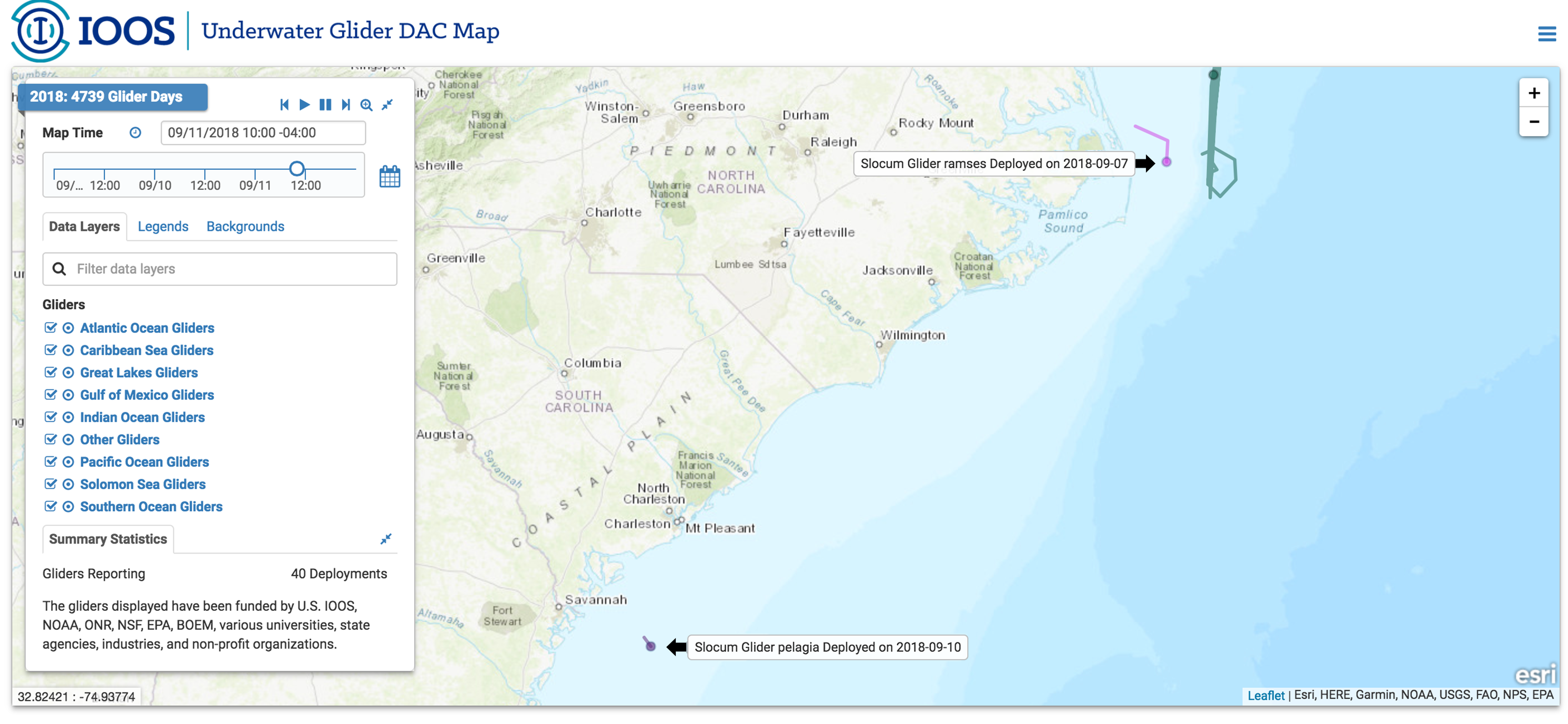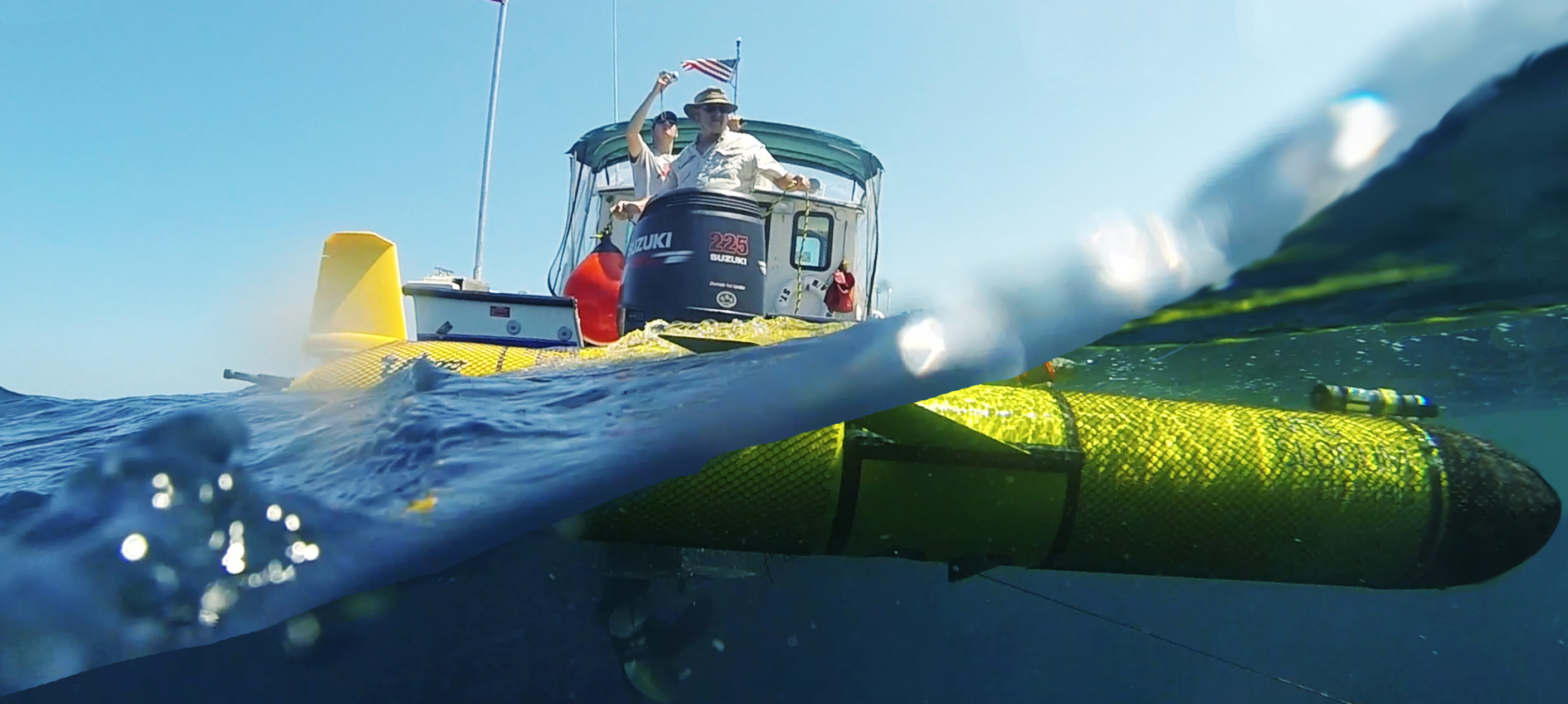
Image Credit: University of South Florida College of Marine Science
![]() Two gliders were deployed in the South Atlantic Bight ahead of Hurricane Florence making her way to the U.S. eastern seaboard. These gliders will gather vital oceanographic information before the potential life-threatening hurricane.
Two gliders were deployed in the South Atlantic Bight ahead of Hurricane Florence making her way to the U.S. eastern seaboard. These gliders will gather vital oceanographic information before the potential life-threatening hurricane.
The glider RAMSES was deployed off the North Carolina Outer Banks by Mike Muglia, Coastal Studies Institute. The second glider PELAGIA was deployed off the coast of South Carolina by Catherine Edwards, UGA Skidaway Institute of Oceanography. Glider operators from SkIO, UNC Chapel Hill, and the University of South Florida will track and pilot the gliders throughout the storm. RAMSES and PELAGIA are collecting and reporting water temperature and salinity measurements throughout the water column
Along the U.S. coastline, the Atlantic Ocean has temperature and salinity stratifications. Colder, denser water is beneath the warmer less dense surface waters. The gliders will help identify how hurricanes mix sub-surface and surface waters. This will enable scientists and meteorologist to determine if the cold water mixing into the warmer surface waters will weaken the hurricane (see NOAA story here).
About Gliders
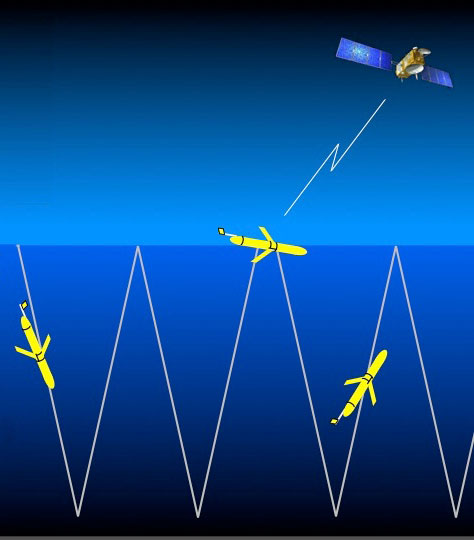 Gliders are autonomous underwater vehicles, often referred to as AUVs, that are remotely operated. They are equipped with sensors that can measure ocean properties such as water temperature, chlorophyll a, salinity and more.
Gliders are autonomous underwater vehicles, often referred to as AUVs, that are remotely operated. They are equipped with sensors that can measure ocean properties such as water temperature, chlorophyll a, salinity and more.
The glider moves in a sawtooth pattern, up and down the water column collecting data. Every so often – even during a hurricane – they surface and transmit data by satellite. Image credited to WHOI.
Data
Data will be used by hurricane forecasters to improve predications on Hurricane Florence’s track.
The glider tracks are available to view on U.S. IOOS Glider Map. Data will be available for viewing after the deployment.
Related news
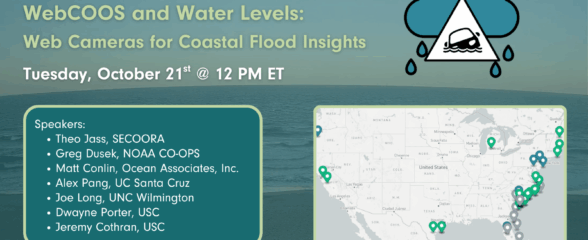
SECOORA Webinar | WebCOOS and Water Levels: Web Cameras for Coastal Flood Insights
On October 21st at 12 PM ET, SECOORA is hosting a webinar with investigators from the Webcam Coastal Observation System (WebCOOS) project team and the WebCOOS Project Manager. Web cameras are a low-cost technology that can be used to document flooding impacts to coastal communities. Register here.
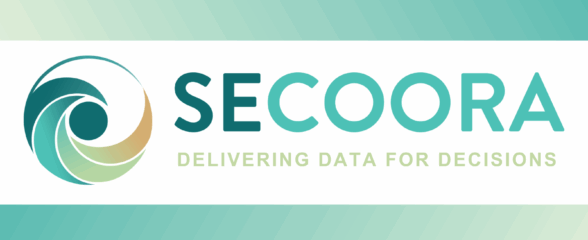
SECOORA Funding Opportunity Announcement: Letters of Intent Solicitation
SECOORA will submit a coordinated regional proposal in response to the anticipated FY 2026 Implementation of the U.S. Integrated Ocean Observing System (IOOS) funding opportunity. Letters of Intent to be considered for inclusion in SECOORA’s full proposal are due September 9, 2025.

SECOORA Hosts the First Surface Elevation Table (SET) Community of Practice Virtual Workshop
The SECOORA SET Workshop was virtual on July 17, 2025. More than 50 Community of Practice members and stakeholders joined this collaborative workshop to discuss SET monitoring, coastal resilience, and data-driven decision making in the Southeast.
